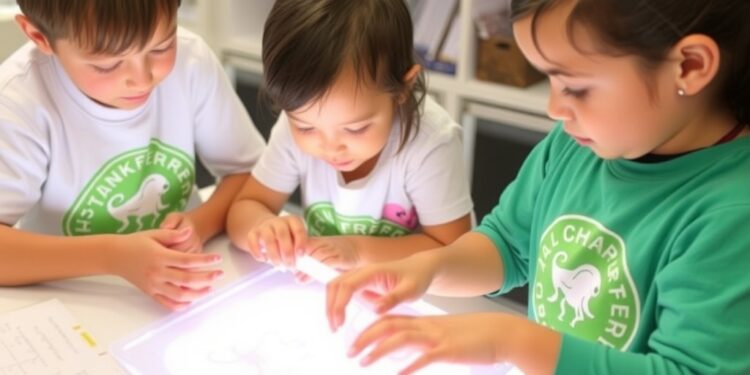In an era where advances in genetics are rapidly transforming the landscape of reproductive choices, a collaborative research project named Tinker Tots emerges from the University of Oxford, the University of Exeter, and the National University of Singapore Yong Loo Lin School of Medicine. This innovative endeavor aims to delve into the ethical quagmire that surrounds embryo selection in in vitro fertilization (IVF). Through an engaging and interactive platform, the study seeks to illuminate how individuals navigate complex decisions regarding potential health conditions and desirable traits when faced with the selection of embryos, while offering participants a unique opportunity to reflect on their own values and priorities.
At the very heart of Tinker Tots lies a critical inquiry: how do the advancements in preimplantation genetic testing (PGT) influence parental decisions about embryo selection? This technology, offering probabilistic assessments of various traits and conditions, introduces not just possibilities, but also dilemmas. Prospective parents may find themselves grappling with profound questions: Is it ethical to select for attributes such as intelligence or artistic talent? Should the potential risk of conditions like heart disease or schizophrenia factor heavily into their choices? These are critical questions that the Tinker Tots project aims to explore.
In each session, participants engage with a series of hypothetical scenarios involving embryo selection, thereby contributing to a broader understanding of human values in medical decision-making. Each embryo presented will bear a distinct genetic profile, coupled with varying probabilities of developing certain conditions or possessing specific traits. With multifaceted decisions to make, participants must weigh these attributes thoughtfully, bringing forth their individual perspectives, which in turn aid researchers in deciphering patterns of choice and prioritization among future parents.
Prof. Julian Savulescu, a Principal Investigator involved in the project, has articulated the essence of this study: it is not merely about genetic outcomes but rather a reflection of what individuals believe constitutes a “good” life. The findings from this research are anticipated to have far-reaching implications: they could inform medical practice, regulatory frameworks governing reproductive technologies, and, crucially, the choices of countless parents who stand at a crossroad of ethical dilemmas. One of the significant challenges remains how to navigate the intersections of personal values, societal norms, and the evolving landscape of genetic science.
The interactive nature of Tinker Tots sets it apart. Through a user-friendly online interface, participants actively make choices in rounds of embryo selection, which are explicitly designed to provoke thoughtful deliberation. Each decision made resonates with broader implications, revealing not only individual preferences but also shedding light on collective societal values regarding genetic traits and health risks. The education aspect of Tinker Tots is essential; it provides an opportunity to inform users about the complexities of genetic information and its ethical connotations.
The research goes beyond immediate participant interaction; it serves as a catalyst for critical discussions about what we value in life and in our offspring. Reflecting on one’s decisions can spark valuable conversations within families and communities. The researchers hope that participants will emerge from Tinker Tots not only with insights into their own decision-making processes but also an enhanced understanding of how others view these challenging questions.
As technology advances, so too does the societal responsibility to engage thoughtfully with these innovations. Tinker Tots engages with issues of equality and inclusivity by opening its doors to anyone interested in exploring how genetic information is interpreted and applied in real-life scenarios. The account of decision-making in embryo selection presents a broad tapestry of human values—a tapestry that is enriched by diverse perspectives. As participants share their experiences and choices during the study, they contribute to a nuanced understanding that can enhance ethical discourse in the field of reproductive medicine.
At the conclusion of their participation, users of Tinker Tots receive a summation of their choices in relation to the collective decisions made by others. It offers a reflective moment where individuals can gain insights into their own biases, preferences, and the ethical landscapes that inform their decisions. It underscores the complexity of choice in embryo selection, revealing how statistical probabilities are interpreted through the lens of personal experiences and cultural values.
The researchers anticipate that Tinker Tots will serve a dual purpose: as a method of gathering data on ethical viewpoints and as a tool for initiating engaging discussions among the public regarding embryo selection and genetic information. This project has the potential to shift the narrative surrounding genetic choice from a mere technical process to a profound ethical consideration, demanding a more reflective and informed approach.
As prospective parents navigate the labyrinth of creating life in a world where genetics play a pivotal role, the insights garnered from Tinker Tots could reshape perceptions and regulatory conversations concerning parental autonomy in the face of scientific possibilities. Ultimately, this collaborative initiative seeks to understand what families might prioritize in the face of advancements that challenge conventional understandings of health, wellness, and the essence of a flourishing life.
The Tinker Tots study is an invitation to not only participate in research but to engage with the moral dimensions of the choices that shape future generations. As it forges ahead, it elicits a collective introspection: in a world saturated with genetic data, how do we choose? What do we value? As these questions resonate, Tinker Tots stands poised to facilitate a necessary dialogue on the ethical complexities of reproductive choices in a rapidly advancing scientific landscape.
Subject of Research: Ethical Dilemmas in Embryo Selection
Article Title: Tinker Tots: A Citizen Science Project to Explore Ethical Dilemmas in Embryo Selection
News Publication Date: 2 April 2025
Web References: https://tinker-tots.net
References: N/A
Image Credits: Tinker Tots
Keywords: Genetics, Reproductive Technology, Ethical Decision-Making, Preimplantation Genetic Testing, IVF Choices.




